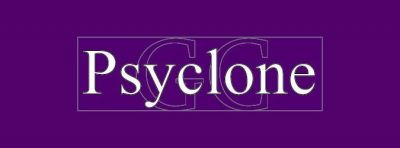2018 Psyclone Newsletter
Vol. 45 No. 2

The longest running departmental newsletter on campus.
Greetings:
Hello friends! Welcome to another edition of the psychology department newsletter. The department is offering an exciting variety of classes this fall, including Heroic Acts and Heinous Crimes, where students have been discussing the nature of morality and good and evil. Additionally, classes on Cognitive Psychology and Counseling Psychology are among the classes that are currently being offered. We look forward to being joined by guest speaker Tracy Harrison, director at the Behavioral Analysis Center for Autism in Elkhart, this month as part of our psychology forum series. Dr. Cosette Fox, psychology professor and researcher at Holy Cross College, will also be presenting her work later this fall. We hope you can join us there!
-Hannah Friesen, Department Assistant
Student Spotlight:
Two students in the Psychology Department had the privilege of taking part in Goshen College’s Service Inquiry Program this past summer. This program awards scholarships to 5-8 students each year in exchange for their participation in three months of service at a faith-based organization.
One of the participants was Jose Ortiz, a third-year biochemistry major and psychology minor, whose placement was in Goshen, IN. Jose says of his summer experience:
I had an internship at Oaklawn Psychiatric Center this summer where I had many opportunities available to me: working on the inpatient unit, working alongside chaplains, shadowing psychiatrists and therapists, and working with the PATH program to find homes for the homeless.
I most enjoyed working at the inpatient unit called Cedars. At Cedars I had many responsibilities, as I was trained as a Mental Health Technician (MHT), but I primarily interacted with clients by doing admissions, taking vital signs, checking in on each of them to see how they were doing and leading groups consisting of health education, exercise, and recreational activities like art. It was beneficial having taken the course Abnormal Psychology because it helped me to understand the different diagnoses before having the internship.
What I most enjoyed about Cedars was getting to know many clients along the way and feeling like I had an important role in their recovery. I did not administer medications, but I interacted with them, heard their struggles, and opened the space for them to be heard. Beyond that, some of the activities I led would lift the spirits of the group. These were primarily exercise groups where I would take some clients to play basketball, or I’d take them for a walk and teach them a dance from my culture along the way. I saw them reminisce about the good things in life like family memories, and friendships, and I saw hope in them. This, alongside them getting the right medications, gave me hope for their recovery. Oaklawn helped to reinforce my interest in mental health services.
Hannah Friesen, a third-year psychology major, represented Goshen College at her placement at Central California Mennonite Residential Services (CCMRS), in Fresno, CA. She remarks:
I was very fortunate to be able to participate in the wonderful community at CCMRS this summer. CCMRS is a residential facility for adults with developmental disabilities, most of whom are capable of a semi-independent level of living, but who need some form of additional support.
My job at CCMRS included a wide variety of activities. I did everything from supporting residents in filling their pillboxes to going on outings with them to the mall or gym or other places they couldn’t go independently. I also worked with residents to get dinner on the table for the common meal. This was definitely the most challenging aspect of my job. Because CCMRS operates under a model of service that emphasizes working with, not for, the residents, I had to help the process along in a way that balanced efficiency with empowering them to make and communicate their own decisions.
One major takeaway I had from this summer was how much a community-based model of support can be key to helping people live their best lives. The meaning of “service” developed a new meaning for me, as I learned that it involves aspects of both giving and opening yourself up to receive the gifts of others.
In the Research:
Although last New Year’s resolutions to be more productive have long been abandoned, now that school’s back in session you may be wondering yet again: How can I work more efficiently? Research suggests several methods for increasing your work output, the first of which is minimizing distractions. Although it’s easy to trick yourself into thinking you’re multitasking, one study shows that people average only six minutes of studying out of fifteen due to time wasted by checking messages on their phones. One suggestion is to increase the amount of time between technology breaks, which has been shown to help people maintain performance levels. In one study, participants who took breaks, even short ones, maintained performance for 40 minutes, compared to declined levels for those who did not do so.
Writing out goals and subsequently reflecting on progress has shown to be an effective strategy in helping students improve academically, even when the goals they focus on are nonacademic. The act of writing itself may help hold people more accountable.
One third and final tip is to stand while studying. This helps improve circulation and get blood flowing to the brain. In one study, people who used stand-capable desks stood an average of 1.5 hours longer per day and were 42% more productive than people at sit-only desks. Although many people don’t have special desks, it’s recommended to at least get out of your chair occasionally.
References:
Stringer, H. (2017, September). Boosting Productivity. Monitor on Psychology, 48(8), 54-58.




